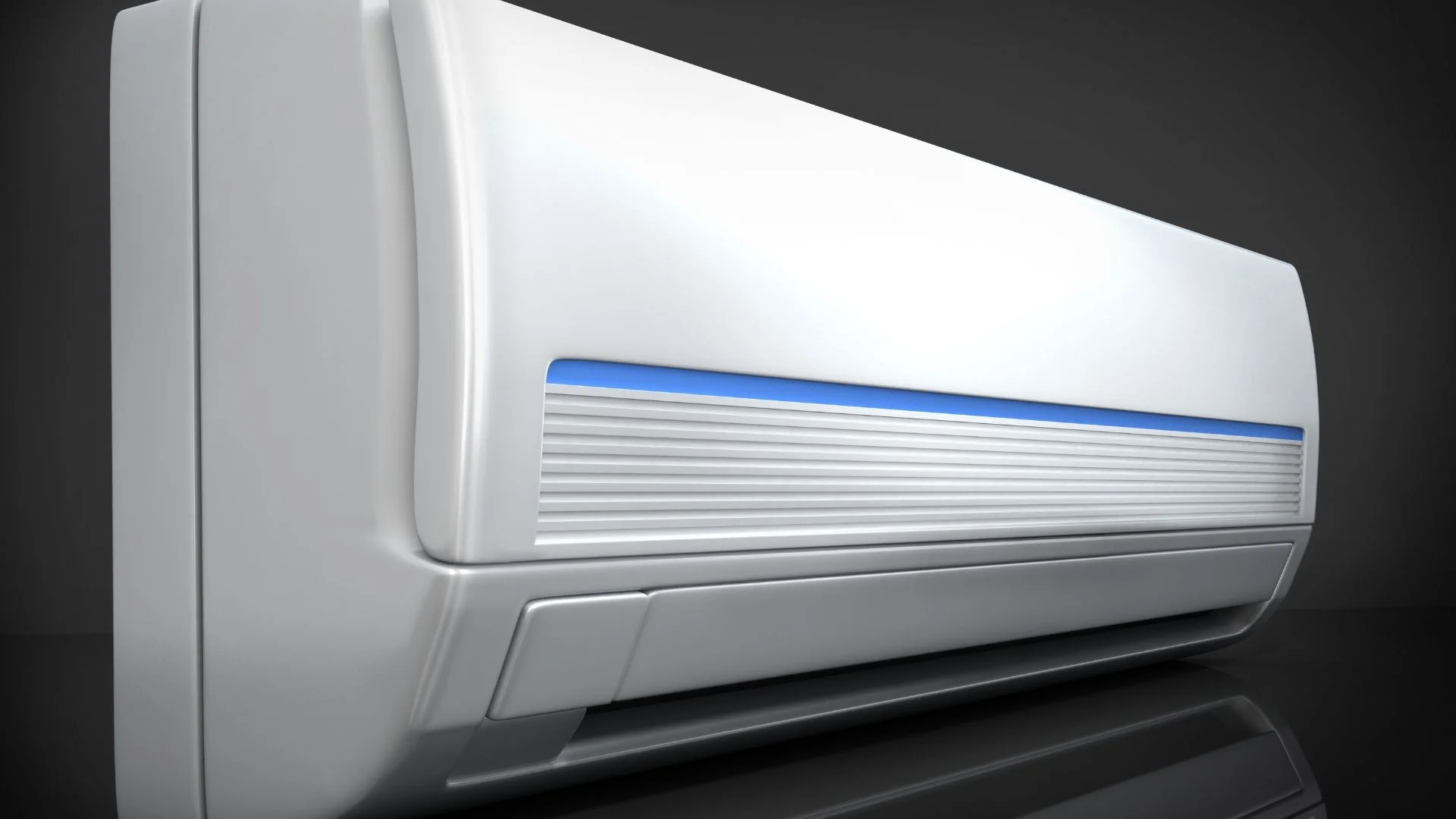Renub Research Forecasts a 6.29% CAGR in the Global Air Conditioner Industry from 2024 to 2032
Rising Temperatures and Urbanization Fuel Demand for Cooling Solutions
According to a recent report by Renub Research, the Global Air Conditioner Market was valued at US$ 148.57 Billion in 2023 and is projected to reach US$ 257.20 Billion by 2032, growing at a CAGR of 6.29% between 2024 and 2032. This growth is primarily driven by escalating global temperatures, rapid urbanization, increased disposable income in emerging economies, and rising concerns over indoor air quality.
As climate change continues to fuel rising heat waves, the need for temperature control systems like air conditioners has never been more urgent. Additionally, expanding urban centers, where concrete structures exacerbate heat, are pushing consumers and commercial establishments to invest heavily in advanced cooling solutions.
Key Drivers Propelling the Global Air Conditioner Market
1. Rising Global Temperatures and Heatwaves
Climate change is a significant factor contributing to the growth of the air conditioning market. With the frequency of heatwaves and record-breaking summer temperatures on the rise, both residential and commercial users are increasingly turning to air conditioning systems for comfort and safety.
2. Urbanization and Infrastructure Development
The expanding middle-class population in countries like China, India, Brazil, and Indonesia is pushing up residential and commercial construction activity. Urban living demands modern infrastructure, and air conditioning is no longer a luxury but a necessity for apartments, malls, hospitals, schools, and offices.
3. Improved Standards of Living and Affordability
Increased consumer purchasing power in emerging markets, supported by easy financing and EMI options, has made air conditioners more accessible. As a result, the penetration of air conditioning systems has surged even in tier-2 and tier-3 cities.
4. Demand for Energy-Efficient and Smart Air Conditioning Systems
Eco-conscious consumers and stricter environmental regulations have prompted the development of energy-efficient air conditioners. Technological innovations like inverter ACs, solar-powered cooling systems, and smart ACs with IoT and AI capabilities are reshaping market preferences.
5. Health Concerns and Air Quality Awareness
Post-pandemic, consumers are more aware of indoor air quality. Air conditioners integrated with air purification functions are gaining popularity for their ability to filter out pollutants, allergens, and bacteria, particularly in polluted urban areas.
Regional Outlook: Asia-Pacific Leads, Followed by North America and Europe
Asia-Pacific Dominates the Global Market
Asia-Pacific is the largest and fastest-growing market for air conditioners, with countries like China, India, Japan, and South Korea leading the charge. High humidity levels, large populations, and booming construction sectors contribute to robust demand in this region.
North America: Rising Demand for Smart and Energy-Efficient ACs
The U.S. and Canada are seeing a growing preference for smart and eco-friendly AC units, driven by increased awareness about energy consumption and carbon emissions. Rebates and incentives on ENERGY STAR-certified products are helping fuel the adoption of modern systems.
Europe: Focus on Sustainability and Regulation
European countries are increasingly focused on green building standards and sustainable cooling. Regulatory bodies have imposed stringent energy efficiency norms, driving innovation in HVAC technology across the continent.
Market Segmentation Insights
By Product Type:
-
Split AC
-
Window AC
-
Portable AC
-
Central AC
-
Packaged AC
-
Others
Split air conditioners currently dominate the market due to their energy efficiency and cost-effectiveness in residential applications.
By Application:
-
Residential
-
Commercial
-
Industrial
The residential sector remains the largest consumer segment, while commercial spaces such as offices, retail stores, and hospitality centers continue to show strong adoption trends.
By Technology:
-
Inverter
-
Non-Inverter
Inverter ACs are increasingly preferred due to their superior energy efficiency, noise reduction, and long-term cost savings.
Competitive Landscape: Innovation and Sustainability at the Forefront
The global air conditioner market is highly competitive, with players continuously investing in R&D to enhance product offerings. Companies are focused on launching eco-friendly models that comply with environmental regulations and reduce carbon footprints.
Key Market Players Include:
-
Daikin Industries
-
LG Electronics
-
Carrier Corporation
-
Mitsubishi Electric
-
Haier Group
-
Panasonic Corporation
-
Gree Electric Appliances
-
Hitachi Ltd.
These industry leaders are innovating with smart features, IoT integration, and refrigerants with low global warming potential (GWP) to gain a competitive edge.
Emerging Trends Reshaping the Market
-
Smart Air Conditioners: The integration of voice assistants, smartphone controls, and AI learning is creating a new wave of intelligent air conditioning systems.
-
Solar-Powered AC Units: With the push toward renewable energy, solar ACs are gaining traction in off-grid and power-deficit regions.
-
Hybrid Systems: Multi-functional units that offer both cooling and heating are being preferred in regions with varying climates.
-
Green Refrigerants: HFC alternatives like R-32 and natural refrigerants are helping manufacturers meet sustainability goals.
Challenges: Energy Consumption and Environmental Impact
Despite strong market growth, energy consumption and environmental concerns remain significant challenges. Air conditioners are among the largest contributors to household and commercial energy use. Their extensive use can lead to power grid strain, increased emissions, and environmental degradation unless mitigated by energy-efficient solutions.
Governments worldwide are imposing regulatory frameworks to encourage responsible usage and innovation in low-impact technologies.
Conclusion: Market Outlook Remains Robust
The global air conditioner market is poised for robust growth through 2032, driven by a combination of climate-related challenges, evolving lifestyle needs, and technological advancements. With increasing demand for healthier indoor environments, especially in rapidly urbanizing economies, the market will continue to present strong opportunities for manufacturers, developers, and investors.
To gain detailed insights, data-driven forecasts, and strategic recommendations, refer to Renub Research’s comprehensive report on the Global Air Conditioner Market.
New Publish Report:
- Middle East Air Conditioner Market Forecast Report by Type (Window Type, Split Type, Precision Air Conditioning, Variable Refrigerant Flow (VRF)), End User (Residential, Commercial, Industrial) Countries (Saudi Arabia, United Arab Emirates, Oman, Qatar, Kuwait, Others) and Company Analysis 2025-2033
- India Commercial Air Conditioning Market Forecast Report by Type (PAC (Precision Air Conditioners), VRF (Variable Refrigerant Flow) Systems, Chillers, Others (Packaged Systems, Rooftop Units, etc.), Application (IT & Data Centers, Hospitality Industry, Healthcare Facilities, Retail and shopping malls, Others (Educational Institutions, Offices, etc.), Distribution Channel (Small Retailers, Modern Retail/ MBO, Online), Regional Analysis (North India, South India, East India, West India) and Company Analysis 2025-2033
- Africa Air Conditioner Market Forecast 2025–2033
About the Company
Renub Research is a Market Research and Consulting Company with more than 15 years of experience, especially in international Business-to-Business Research, Surveys, and Consulting. We provide a wide range of business research solutions that help companies make better business decisions. We partner with clients across all sectors and regions to identify their highest-value opportunities, address their most critical challenges, and transform their businesses.
Our wide clientele includes key players in Healthcare, Travel & Tourism, Food & Beverages, Power & Energy, Information Technology, Telecom & Internet, Chemicals, Logistics & Automotive, Consumer Goods & Retail, Building & Construction, and Agriculture. Our core team comprises experienced professionals with graduate, postgraduate, and Ph.D. qualifications in Finance, Marketing, Human Resources, Bio-Technology, Medicine, Information Technology, Environmental Science, and more.
Media Contact:
Company Name: Renub Research
Contact Person: Rajat Gupta, Marketing Manager
Phone No: +91-120-421-9822 (IND) | +1-478-202-3244 (USA)
Email: rajat@renub.com






